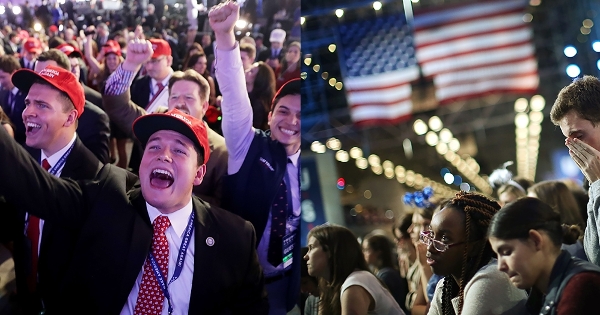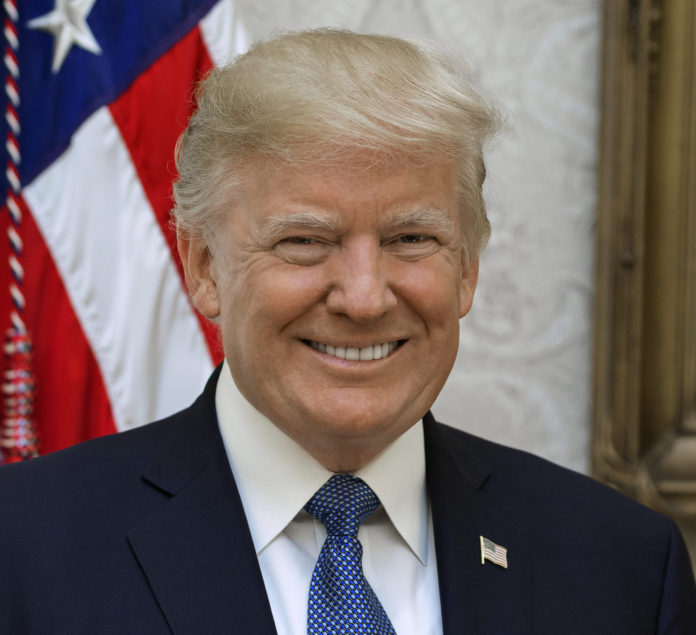Context
As In the increasing global volatility the US had come to symbolize stability and continuity. However, the election of Donald Trump signifies this would no longer be the case. The unfolding reality has created a new level of uncertainty in world affairs, especially for allies under NATO and the European Union (EU). The EU was already struggling under the dramatic blow of Brexit, and now the Trump administration has decided to pull out of the Trans- Pacific Partnership (TPP) and the future of Trans-Atlantic Trade and Investment Partnership (TTIP) is also unclear.
Ethnic nationalism and protectionism is taking over the forces of globalization, and bilateralism is replacing multilateralism. But how did US reach this point.
Back in July 2016, PoliTact had noted:
“The grave local and global challenges being confronted by the US are multifaceted and may not be resolvable by the politics of election cycles. The political jockeying can help parties win elections, but if they are able to actually resolve issues, is questionable. In fact, the problems and challenges are getting worse. If and when America develops the will to conduct a system level correction, it will have profound global implications.”
So is the Trump administration carrying out the system level correction pointed out above, and which Trump calls ‘drain the swamp’? While it certainly appears to be, so far the answer seems murky.
But what does reform in the system mean in the American context?
It can be broadly referred to the relevance of American constitution and the election system. Then there are issues related to the influence of the lobbyists, corporations and interest groups. Thirdly, there are challenges connected to how strong the American institutions have become to control policymaking, or implement the mandate of people exercised through the elected representatives.
In a nutshell, is the American system of checks and balances operating as the founders and the framers of the constitution intended? Or put in other words, is the system working for the benefit of the people – or for the few?
Campaign Financing
The New York Times op-ed columnist David Brooks reflected in May 2012:
“The American decentralized system of checks and balances has transmogrified into a fragmented system that scatters responsibility. Congress is capable of passing laws that give people benefits with borrowed money, but it gridlocks when it tries to impose self-restraint.”
The economic recession and banking scandals revealed what the unchecked association between money and power can do to the system. The representatives of the people are now caught between serving powerful interests groups or the welfare of common people, and the recent scandals reveal they have repeatedly chosen the former. The political leaders are dependent on funds they generate from the interest groups to contest elections, and they cannot afford to alienate them.
In a surprising ruling in 2010, the US Supreme Court gave corporations the permission to spend unlimited amounts of money to get their favored candidates elected and the despised ones defeated. The dissenting justices opined, this “threatens to undermine the integrity of elected institutions across the nation.”
A Washington Post editorial noted at the time, “It was wrong because nothing in the First Amendment dictates that corporations must be treated identically to people. And it was dangerous because corporate money, never lacking in the American political process, may now overwhelm both the contributions of individuals and the faith they may harbor in their democracy.”
Seemingly, these concerns have not been entertained. The situation has worsened to the extent that people have questioned how the complicated American Electoral College works. Irrespective of the original intent – it apparently dilutes the will of the people.
Fiscal Politics
In 2012, one of the critical battles complicating the American elections was how to address the then approaching ‘fiscal cliff’. A bi-partisan Super Committee was formed and instructed to come up with a working solution to the mounting budget deficit by Nov 23rd, 2011. Many seasoned politicians, including Senator Kerry, had warned at the time that inability to find a solution by the deadline, as had occurred, would make deficits a major issue in the presidential election. By law, the committee’s failure to develop a budget deal would automatically trigger spending reductions on October 1st 2012, cutting $1.2 trillion from the military, education, health care and other priorities over the next decade.
The major bone of contention between the Republicans and Democrats was obviously what programs to cut. US Defense Secretary Leon Panetta had alerted lawmakers earlier not to implement a “doomsday mechanism” that would have resulted in Pentagon budget slashed by $600bn, saying that these cuts could severely threaten US national security. The cuts were only supposed to kick in if the Super Committee fails to secure a deal on budget savings.
On the other hand, President Obama faced stiff opposition from the Republicans on increasing tax on the rich to tackle the alarming US deficit. The Republicans had opposed the plan such as the ‘Buffet Tax’.

The debate between the two parties reflected their traditional worldview. The Republican’s do not like to tax the rich and see it as counterproductive to inducing more investments. Moreover, they like to cut social programs, from which mostly the lower middle class and poor benefit. They are considered strong on issues of national security and thus they defend defense budgets. On the other hand, Democrats usually increase social spending that results in bigger government and want to tax the rich more and the middle class less.
The prominence of the debate on fiscal matters had given rise to the popularity of Tea Party Movement. The Tea Party believes in a nationalistic agenda with focus on balancing the budget and stopping the deficit spending. More specifically, it stands for ending the influence of special interest.
Now that Republicans have won, the defense spending is being increased and many social programs, including Obama Care are on the chopping block. According to CNN, the White House has instructed to cut the budget for State Department, US mission to the United Nations, including US peace making and development assistance, nearly by half. But how will this be beneficial for the Americans who have suffered from globalization and economic recession remains unclear.
On the other hand, presidential candidate Senator Bernie Sanders has put forward a 12-point agenda for America. This agenda focuses on rebuilding the crumbling infrastructure, raising minimum wage, implementing trade policies for the benefit of American workers, taking on Wall Street etc.
Trump Phenomenon
It is in this context that we need to understand the Trump phenomena. He exploited that rage of the people against status quo and the establishment, when the economic prospects of many Americans have dwindled under the forces of globalization and economic recession.
Many claim that Trump did not need the support of corporations and the Wall Street to win the election, and this is why he is uniquely positioned to reform the system. With the appointment of many billionaires and executives from the Wall Street and mega Banks, that proposition has been silently laid to rest.
Another assumption is that Trump will ultimately have to compromise to win the support of other politicians and to develop consensus. This point is also being tested. Since Trump won the elections despite opposition from Republican heavies, it is questionable if he would adjust to their pressure. It is more likely the Republican Party would have to bend over backward to accommodate him, as oppose to the other way around. Trumps posses heavy sway on the constituents of these representatives, and they would probably be dislodged if these representatives decided to go against Trump.
As policy deliberations move forward, conflicting statements continue to emanate from the top leadership regarding the future direction. In essence, the nationalistic economic agenda does not rhyme well with the US foreign policy, and aligning these will not be easy. It’s not clear how cutting social programs and resources for diplomacy, giving a free hand to the Wall Street and the Banks that created the economic disaster, while increasing the defense budget, will rectify the ‘American Carnage’ Trump identified in his inaugural speech. It appears more like benefiting the few at the cost of many.
American Exceptionalism and Diversity
Making America great would have to be based on what the US has become, not what it was.
Countering Putin’s article in the New York Times on September 11, 2013, Obama had stated America is indeed exceptional, and it will act when there are justifiable moral and greater reasons to do so. “But I believe America is exceptional. In part because we have shown a willingness through the sacrifice of blood and treasure to stand up not only for our own narrow self interest, but for the interest of all.”
The query for Americans to address is: will the future policies be framed on the basis of how diverse it has become – or premised on revisionist tendencies? And this inquiry is especially relevant to the role of American Muslims, and other minorities, as the homegrown threats related to extremism become more acute. American’s would have to question that despite having a dynamic Muslim population, why is the nation losing leverage in the Muslim world to other players who have dismal record on dealing with minorities.




